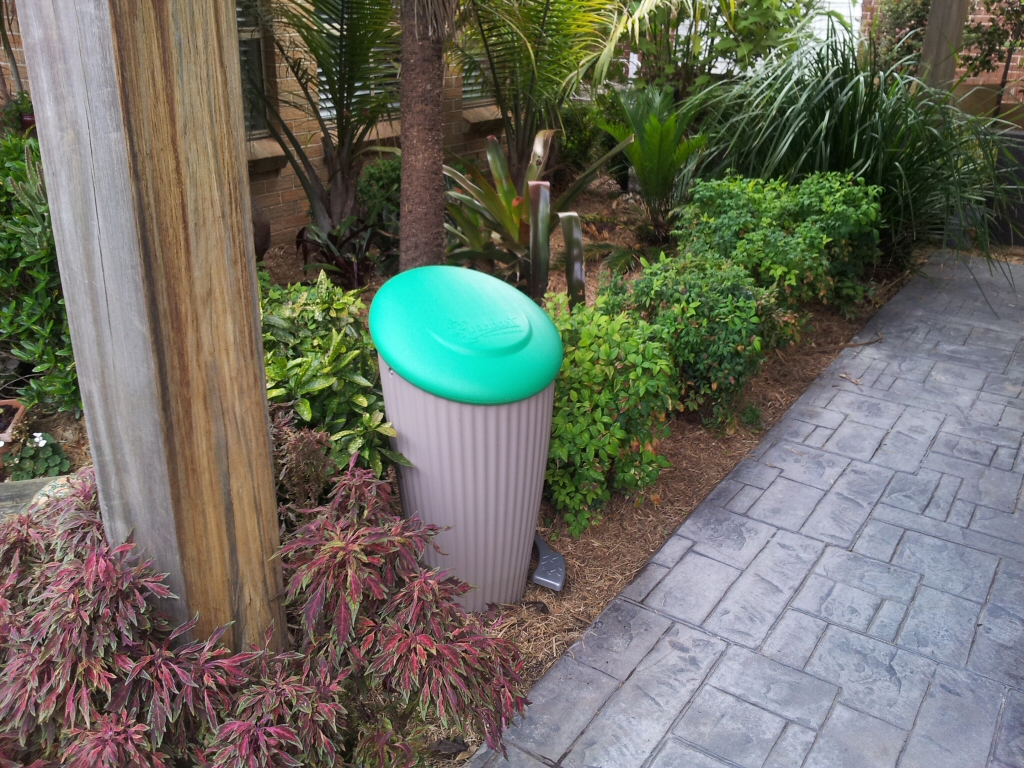We spend lots of money on pet food and dogs in particular create mountains of droppings which either get put into bags and sent to landfill, or sit on the ground and often get washed into waterways where the nutrients can cause detrimental effects such as algal blooms that pollute rivers and creeks.
There are some health risks associated with pet manure that you do need to be aware of, particularly with dogs and cats. Pets can carry parasites such as roundworms, which is transmissible to humans. Other organisms such as the gastric parasite Giardia and various bugs and viruses, can also be transmitted by contact with animal manure.
Because of these risks there are a few precautions which should be taken when handling pet manure; gloves should be worn at all times, or use a bag or other protection when picking up manure to protect the skin at all times when handling manure. Hands should be washed thoroughly immediately after handling manure, even with gloves, as a precaution. As hand to mouth contact is the most common route of transmission these precautions are very important.
Also, pet manure should not be buried and composted anywhere near edible plants, particularly root vegetables such as sweet potatoes, turnips, shallots and other bulb vegetables, where the microorganisms generated by the manure could potentially cause problems if ingested.
Dog, Cat, Bird and Cow and Sheep manures should all be handled carefully due to this risk, however if the appropriate precautions are taken animal manures can be a very valuable soil amendment and addition to compost. Cats also pose an issue with their manure, which can carry parasites, which can be passed from cats to humans through contact with their manure and also kitty litter. In particular a parasitic organism called Toxoplasma gondii is a health risk for humans, this is dangerous to pregnant women and immunocompromised people and can even have behaviour altering effects on those with healthy immune systems. Wearing gloves when handling manure and washing hands carefully afterwards greatly reduces the risk of infections or parasites being passed on to humans in this way. Cats often bury their manure which can be an issue if they are allowed to do this around vegetable gardens or near plants that are grown for food.
However, an innovative idea from a company called Tumbleweed, is the YardArt pet poo composter which utilises earthworms.
It is a cylindrical unit with a foot pedal operated lid, the base of the unit is buried in the soil and is designed with holes at soil level in the wall of the cylinder, which allows the earthworms to migrate in and out of the unit, composting the pet manure and spreading the nutrient rich castings into the surrounding soil. Earthworms can process large amounts of manure and this unit can easily accommodate the droppings of a couple of large dogs.
Composting pet manure is a very feasible proposition, and the best method for this is certainly to use earthworms to facilitate and speed up this process. This can also be done with a length of pipe with holes drilled in the side. Also, simply burying manure in the garden will work quite well. The main precaution that is needed is to ensure that the manure is not buried near food producing plants.
It is really important to return the manure to the soil, as too often pet manure is disposed of in plastic bags which are then deposited in landfill.
Organic matter breaks down in landfill however it does so anaerobically which is a very different process to the aerobic or oxygen assisted composting done by the worms.
Anaerobic decomposition, which happens when manure is buried in landfill sites, releases methane and other greenhouse gases. Returning the manure to the soil returns the nutrients present to the soil where they can be utilized by trees, shrubs, lawn grass and other plants.
This also captures carbon by stabilising it in the soil and the trees and plants that capture and utilise carbon in soil for their growth. This prevents the release of excess carbon into our atmosphere where it is a significant contributor to global warming.
Another benefit to this is the amount of money spent per annum on pet food which is usually turned into landfill, if you do keep a dog or cat, but particularly with dogs, the composting of their manure is a very feasible proposition, and instead of spending all that money on artificial fertiliser you can create your own organic and environmentally friendly alternative.
Composting of pet manure is certainly an idea worth considering for many reasons, particularly for those with dogs. It is worth noting that other domestic animals such as horses also produce manure that makes a very useful, safe and nutrient rich addition to compost.

